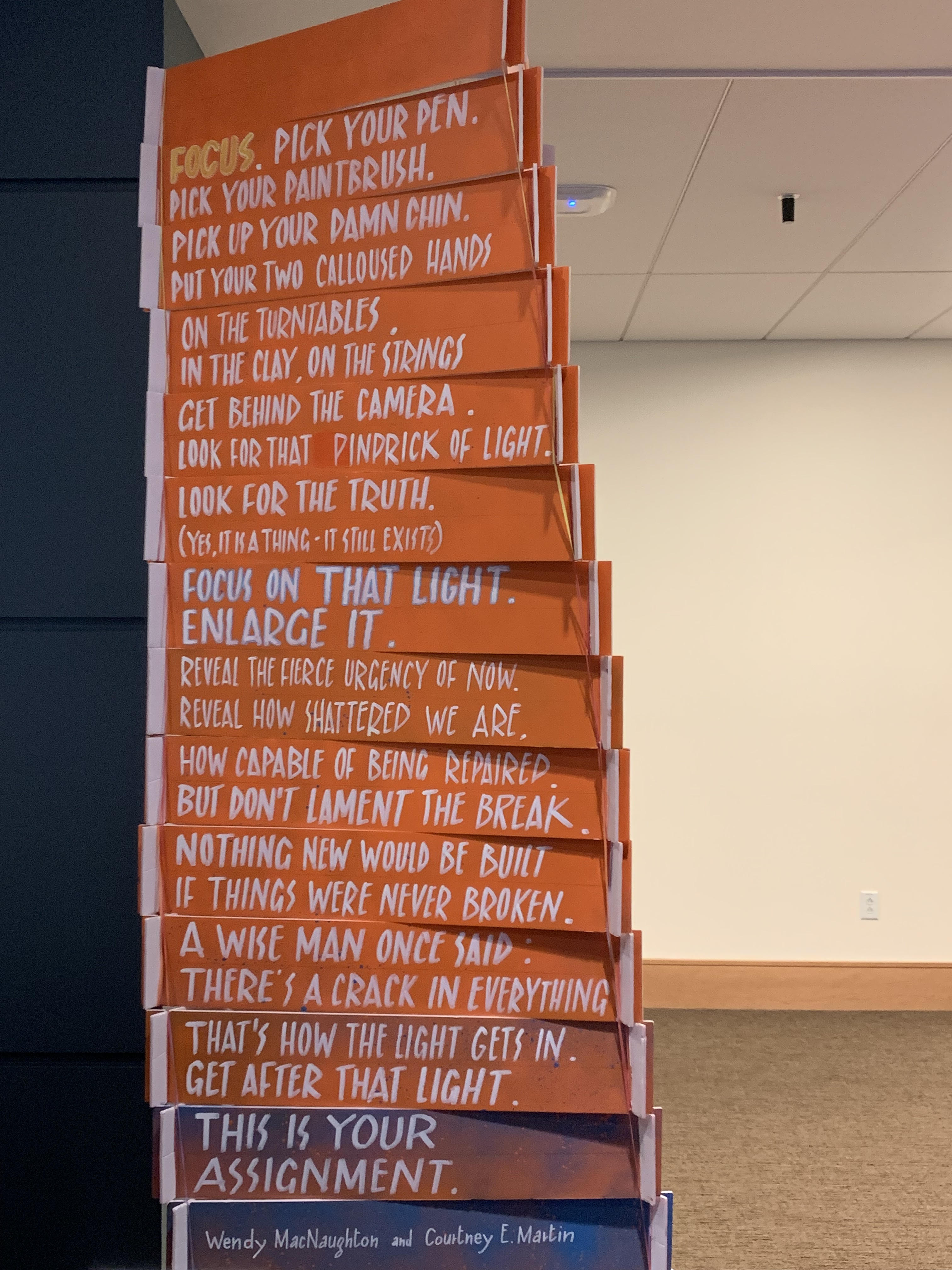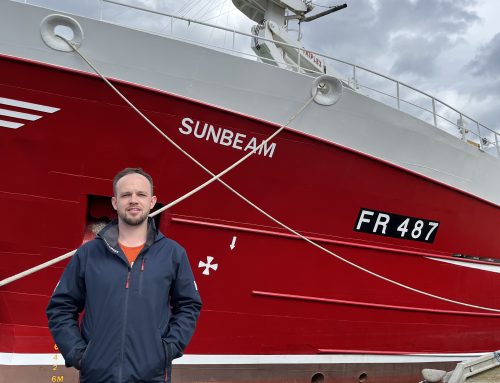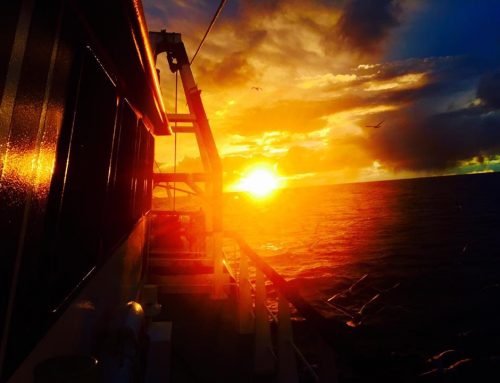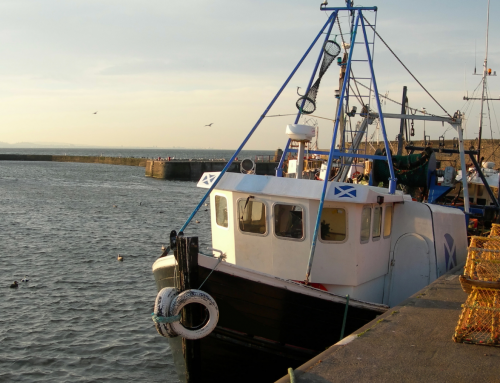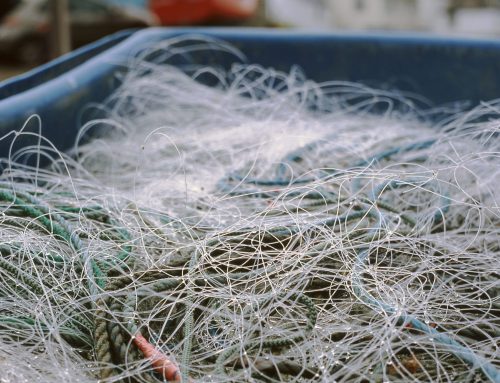In December 2019, Kate Rydzkowski from Orkney Sustainable Fisheries attended a course at Harvard Business School, USA, with funding from Fisheries Innovation and Sustainability (FIS) and The Fishmongers’ Company. We asked Kate about her experience and what it will bring to the Scottish seafood sector.
Leading and Building a Culture of Innovation
 The course, ‘Leading and Building a Culture of Innovation’ at the world-renowned Harvard Business School, identifies the qualities of successful leaders and encourage participants to apply these to approaches towards innovation in their own and each other’s sectors. It was a very ‘personal’ course, Kate told us, where participants looked deeply into themselves and questioned their shortcomings as well as the potential for growth. It was ‘emotionally, physically, intellectually demanding’, but she would ‘go back in a heartbeat’. The course showed her the potential for innovation in the Scottish seafood sector and what it will take to get there.
The course, ‘Leading and Building a Culture of Innovation’ at the world-renowned Harvard Business School, identifies the qualities of successful leaders and encourage participants to apply these to approaches towards innovation in their own and each other’s sectors. It was a very ‘personal’ course, Kate told us, where participants looked deeply into themselves and questioned their shortcomings as well as the potential for growth. It was ‘emotionally, physically, intellectually demanding’, but she would ‘go back in a heartbeat’. The course showed her the potential for innovation in the Scottish seafood sector and what it will take to get there.
What makes a good leader?
The course encouraged the participants to question and understand what good leadership looks like in order to help them become better leaders themselves. Among the core qualities identified was passion, which Kate sees as key to overcoming our obstacles in order to reach the ‘amazing future’ with ‘such potential’ that she sees for the Scottish fishing industry.
If we use language more available to fishermen to communicate and then solve industry issues, our policies will not only be more effective but also robust and transparent.
In addition to passion, good leaders help their colleagues, networks, and industries become more innovative: ‘not a fast process’, Kate says, but one she is determined to embark on. ‘The knowledge I have gained from the people I have met and been taught by at Harvard has given me even more drive to help the industry,’ Kate told us.
Innovation Challenge
Each participant went to the course with an ‘innovation challenge’: a specific issue facing their sector which a shift in approach might solve. For Kate, the priority in the Scottish fishing industry is more effective communication in order to reach everyone involved. Currently, she argues, fishermen at the industry’s grass-roots level are not as involved in fisheries policy and science as they should and would like to be, and the key is finding ways to better communicate with them.
The course itself touched on this issue, asserting (using a quote from Steve Jobs: ‘Everyone has a slice of genius) that input from all levels of a sector is key to innovation and all stakeholders should be given the opportunity to have and share ideas.
However, participants were also encouraged to form ‘Brain Trusts’ with each other to help them address their innovation challenges. The members of Kate’s Brain Trust were there voluntarily, having chosen to understand her innovation challenge better and expressed a desire to help her find a solution. Kate’s Brain Trust included participants from Holland, Oman, and the United Arab Emirates who used a process labelled ‘creative abrasion’, asking the questions ‘you don’t want to be asked but need to!’.
Fishermen at the industry’s grass-roots level are not as involved in fisheries policy and science as they should and would like to be, and the key is finding ways to better communicate with them.
Learning from other sectors
Kate’s Brain Trust helped her see that her innovation challenge needed breaking down: instead of looking at communications as a whole, our industry should identify who we want to communicate with and the best ways to do so. While these methods may differ between groups, the Brain Trust established the importance of making our sector’s common language more transferrable. If we use language more available to fishermen to communicate and then solve industry issues, our policies will not only be more effective but also robust and transparent.
Though the course had around 65 participants, these smaller groups with facilitators helped participants understand each other’s views and ensured that everyone got involved. This itself inspired Kate, who thought such a model of collaboration outside the traditional setting of a conference or workshop might be the solution to engaging people who are less likely to ‘speak up’ in the industry. Kate came away wondering whether the industry always has all the right people around tables: some who may have been ‘overlooked’ for one reason or another may provide something entirely different to the discussion, and ‘this should be harnessed and included where necessary’. A common level of understanding across the industry will ensure that we all work with a shared foundation of beliefs towards a shared goal.
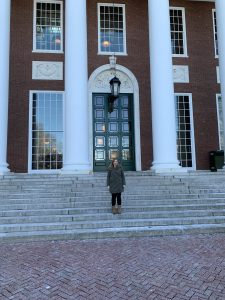 In addition to an array of incredibly well-connected and highly experienced course tutors, Kate found herself working alongside participants from a wide variety of other sectors from around the world. She found that this opened her up to new ways of thinking about particular issues and challenges, highlighting the fact that looking at an issue through a different frame can ‘spark innovation’. All of the advice, discussions, and potential solutions to Kate’s innovation challenge were recorded by Harvard and shared with her upon her graduation.
In addition to an array of incredibly well-connected and highly experienced course tutors, Kate found herself working alongside participants from a wide variety of other sectors from around the world. She found that this opened her up to new ways of thinking about particular issues and challenges, highlighting the fact that looking at an issue through a different frame can ‘spark innovation’. All of the advice, discussions, and potential solutions to Kate’s innovation challenge were recorded by Harvard and shared with her upon her graduation.
Removing distractions
It is well known that modern society depends heavily on technology for many things, including communication and ideas generation, which can often distract from the task at hand. This is especially the case in meetings from which ‘true innovation could [otherwise] come’, Kate told us. In order to combat this, phone use during the course was strictly not permitted between 08:00 and 18:00. Instead, the School made sure everything participants might need was recorded by live illustrators and a professional photographer.
Having a week with no mobile phone access showed Kate ‘how much more engaged and productive [she] can be without checking emails every five minutes’. Although this was ‘intense’, it is a practice Kate intends to continue now she has returned; while technology certainly has an important role in the work environment, she realised that in meetings and workshops it is more important that participants are ‘fully engaged’.
Does the industry always have the right people around tables: some who may have been ‘overlooked’ for one reason or another may provide something entirely different to the discussion?
Future of Scottish fishing
Kate believes that the course at Harvard ‘will absolutely make a difference’ to the Scottish fishing industry’s approaches to innovation and the challenges it faces. It left her with the impression that the industry is not yet performing to the best of its potential due to certain conflicts which need to be addressed before innovation can happen. Kate now has a greater understanding of what the business world calls ‘performance gaps’ and ‘opportunity gaps’ and what is required of us to close the former and move on to the latter – helping us move on from where we should be and on to where we could be.
Although Kate was the only person from the fishing industry on the course, she learned that a previous participant had come from the Icelandic fishing industry, who she plans to get in touch with and see how they have used the course since leaving. She hopes that more of our industry leaders will attend the course in the future as she believes this difference will help to ensure the industry’s survivability.
‘This has been truly a once-in-a-lifetime experience,’ says Kate – and one that has made her see a potential future of innovation for the Scottish industry. We look forward to seeing how she implements the skills and lessons from her course: tools she plans to share in order to make this future happen.
Hear more about Kate’s experience – and how it can help the Scottish industry release untapped potential for greater prosperity and sustainability – and the Scottish Fishing Conference 2020. Register here

